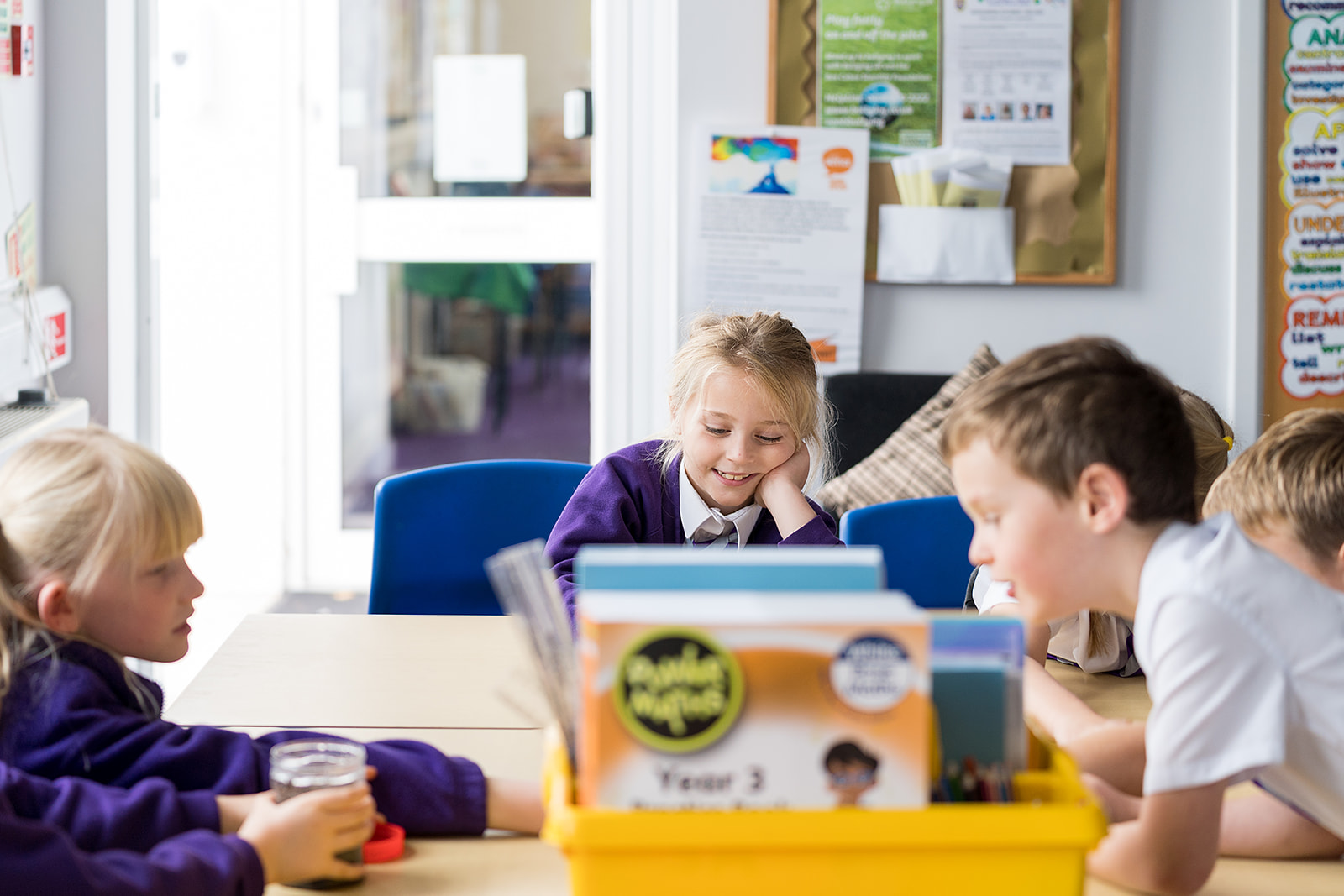Mathematics

Our intent at St. Cuthbert Mayne is to provide an outstanding mathematics curriculum for our pupils, following a mastery approach to learning and teaching. Mastering maths means pupils of all ages acquiring a deep, long-term, secure and adaptable understanding of mathematical procedures and concepts. We aim to build firm mathematical foundations through a diet of fluency, reasoning and problem solving. As prescribed in the National Curriculum, our goal is to extend children through depth rather than acceleration.
In EYFS, teaching follows the EYFS framework and uses the White Rose Maths Hub resources. In KS1 and KS2, we use the Power Maths scheme of work which ensures progression, coverage and depth of knowledge for all learners. Support and challenge is provided for all children through scaffolding, questioning and intervention.
Everyone can!
Children at St. Cuthbert Mayne are encouraged to have a growth mindset and that by working hard they can succeed. We foster a love of mathematics and want to change the belief that a large proportion of people ‘just can’t do maths’.
Whole-class teaching
Pupils are taught through whole-class interactive teaching, where the focus is on all pupils working together on the same lesson content at the same time. This ensures that all can master concepts before moving to the next part of the curriculum sequence, allowing no pupil to be left behind. If a pupil fails to grasp a concept or procedure, this is identified quickly and early intervention ensures the pupil is ready to move forward with the whole class in the next lesson.
Intelligent practice
It is recognised that practice is a vital part of learning, but the practice used is intelligent practice that both reinforces pupils’ procedural fluency and develops their conceptual understanding. Significant time is spent developing deep knowledge of the key ideas that are needed to underpin future learning. The structure and connections within the mathematics are emphasised, so that pupils develop deep learning that can be sustained.
Structures and representations
Within their maths learning, children will use a range of concrete, pictorial and abstract representations; this is vital to develop a deep understanding of key concepts. For more detail on the representations that we use, please refer to our calculations policy.
Mathematical talk
Children will experience and use precise language. Mathematical terms are highlighted and clearly explained and children practise using this language in context. Children use full sentences to explain or respond in order to develop their reasoning and clarify their understanding. The use of stem sentences supports children to express mathematical concepts accurately and children are encouraged to repeat these frequently to embed their knowledge. Children have clear opportunities within their maths lessons to think and reflect, so that their talk is purposeful and develops mathematical thinking.
Fluency
Key facts such as multiplication tables and addition facts within 10 are learnt to automaticity to avoid cognitive overload in the working memory and enable pupils to focus on new concepts. These skills are practised in regular fluency sessions.
Pupils in EYFS and KS1 are following the NCETM’s Mastering Number programme – a short daily ‘number sense’ session – aimed at strengthening children’s fluency in calculation and their understanding, confidence and flexibility with number.
Pupils in KS2 practise multiplication facts and rehearse and strengthen their calculation skills. The 2014 Mathematics National Curriculum expects that by the end of Year 4, children will know all the times tables facts up to 12 x 12. We use a variety of approaches to support the children in this, including the use of Times Tables Rockstars.
Early Years Foundation Stage
During the Early Years Foundation Stage, we aim to develop a strong grounding in number so that all children develop the necessary building blocks to excel mathematically. Children are taught to count confidently, develop a deep understanding of the numbers to 10, the relationships between them and the patterns within those numbers. By providing frequent and varied opportunities to build and apply this understanding, children will develop a secure base of knowledge and vocabulary from which mastery of mathematics is built. In addition, the curriculum includes rich opportunities for children to develop their spatial reasoning skills across all areas of mathematics including shape, space and measures. We encourage children to develop positive attitudes and interests in mathematics, look for patterns and relationships, spot connections, ‘have a go’, talk to adults and peers about what they notice and not be afraid to make mistakes.
Mathematics in the National Curriculum
Key Stage 1
The principal focus of mathematics teaching in key stage 1 is to ensure that pupils develop confidence and mental fluency with whole numbers, counting and place value. This involves working with numerals, words and the four operations, including with practical resources [for example, concrete objects and measuring tools]. At this stage, pupils develop their ability to recognise, describe, draw, compare and sort different shapes and use the related vocabulary. They are also taught to use a range of measures to describe and compare different quantities such as length, mass, capacity/volume, time and money. By the end of year 2, pupils should know the number bonds to 20 and be precise in using and understanding place value. Pupils should read and spell mathematical vocabulary, at a level consistent with their increasing word reading and spelling knowledge at key stage 1.
Lower Key Stage 2
The principal focus of mathematics teaching in lower key stage 2 is to ensure that pupils become increasingly fluent with whole numbers and the four operations, including number facts and the concept of place value. This should ensure that pupils develop efficient written and mental methods and perform calculations accurately with increasingly large whole numbers. At this stage, pupils develop their ability to solve a range of problems, including with simple fractions and decimal place value. Pupils develop mathematical reasoning so they can analyse shapes and their properties, and confidently describe the relationships between them. They are taught to use measuring instruments with accuracy and make connections between measure and number.
By the end of year 4, pupils should have memorised their multiplication tables up to and including the 12 multiplication table and show precision and fluency in their work. Pupils should read and spell mathematical vocabulary correctly and confidently, using their growing word reading knowledge and their knowledge of spelling.
Upper Key Stage 2
The principal focus of mathematics teaching in upper key stage 2 is to ensure that pupils extend their understanding of the number system and place value to include larger integers. This should develop the connections that pupils make between multiplication and division with fractions, decimals, percentages and ratio.
At this stage, pupils develop their ability to solve a wider range of problems, including increasingly complex properties of numbers and arithmetic, and problems demanding efficient written and mental methods of calculation. With this foundation in arithmetic, pupils are introduced to the language of algebra as a means for solving a variety of problems. Teaching in geometry and measures consolidates and extends knowledge developed in number. Pupils will be taught to classify shapes with increasingly complex geometric properties and that they learn the vocabulary they need to describe them.
By the end of year 6, pupils should be fluent in written methods for all four operations, including long multiplication and division, and in working with fractions, decimals and percentages. Pupils should read, spell and pronounce mathematical vocabulary correctly.

